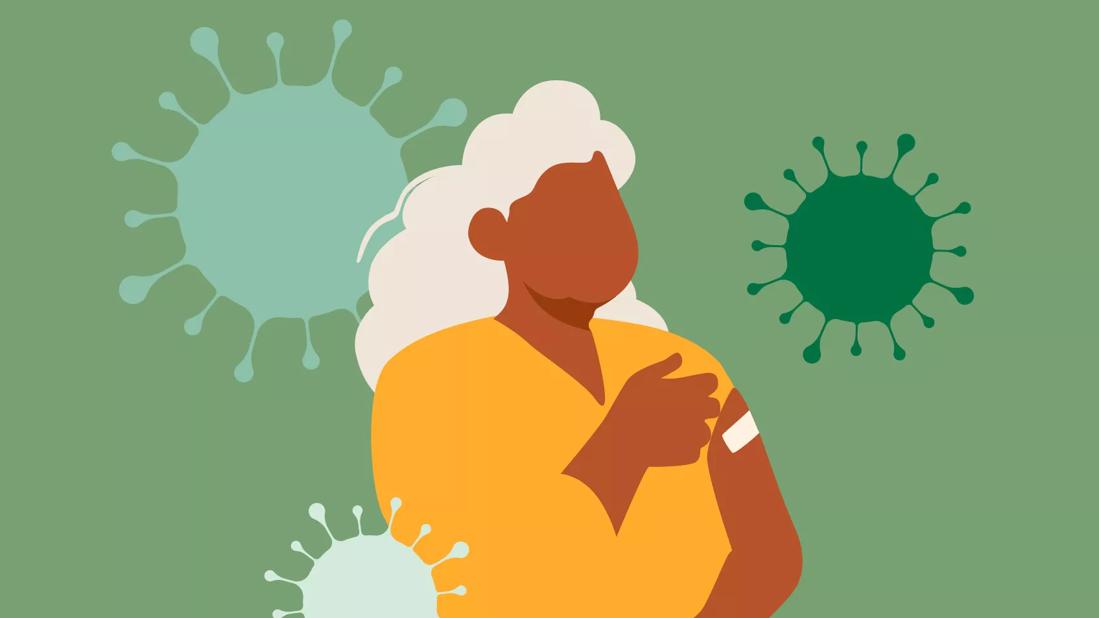Certain members of the population have been approved for a second booster

The COVID-19 pandemic lingers on, and as researchers keep an eye on a rise in cases driven by a new mutation of the omicron variant, it’s time for some people in the United States to once again booster up.
Advertisement
Cleveland Clinic is a non-profit academic medical center. Advertising on our site helps support our mission. We do not endorse non-Cleveland Clinic products or services. Policy
The CDC (U.S. Centers for Disease Control and Prevention) and FDA (U.S. Food and Drug Administration) have approved a new round of COVID-19 vaccine boosters for certain members of the population: those over 50 years of age and immunocompromised individuals 12 years of age or older.
To learn more about what’s happening with this new round of boosters and what’s next, we spoke to primary care specialist, Kimberly Giuliano, MD.
“Both the CDC and the FDA have authorized the second COVID-19 vaccine booster for those 50 years of age and older and immunocompromised individuals age 12 and up,” says Dr. Giuliano. And the reason is pretty simple: added protection.
“These groups are most at risk for serious complications from a COVID-19 infection,” notes Dr. Giuliano. “They’re at higher risks of severe disease, hospitalization, needing a ventilator or ICU for their care and even, potentially, death.”
They’re also the groups of our population whose immune response may not be as robust. These additional doses are helpful for vulnerable groups, as their immunity from previous doses wanes over time.
Yes, this second booster will offer added protection for those who need it most. As with some other vaccines, the effectiveness of prompting the proper antibody response can wane over time. “The more time that elapses between vaccines, the lower an individual’s antibody levels are,” explains Dr. Giuliano. “If we can increase their antibody response, we can increase their ability to fight an infection if they’re exposed.”
Advertisement
The primary goal, she adds, is to prevent serious cases, hospitalization and death, as some individuals still face the risk of transmission or infection despite being vaccinated and boosted. “Our hope is to keep these at-risk groups as healthy as possible,” she says.
If you’re eligible, yes, says Dr. Giuliano, you should get the second booster. While cases have dramatically decreased following the omicron surge, there are signs we could be heading for another uptick in cases.
The omicron BA.2 variant, a new version of the very infectious omicron mutation that caused the large surge in cases earlier this year, is currently the dominant variant in the United States. It’s also been circulating for several weeks in the United Kingdom and Europe. While it may not be as big as the previous surge, Dr. Giuliano says it’s possible we could see another wave of cases from this variant.
“Because of that risk, it’s best to think about vaccines in terms of prevention instead of waiting for another wave of cases to arrive,” she advises. “That’s especially true for those individuals at high risk for complications from COVID-19 infection.”
She continues, “With the previous omicron surge, those who only had one dose of an mRNA vaccine or two doses and no booster were at a higher risk for hospitalization than those who had three doses. So keeping up to date with your vaccinations is the most important piece.”
Dr. Giuliano says the FDA will be meeting in early April to review new data from both the United States and other countries. From there, they’ll determine if additional groups will need to receive a second booster shot.
As for whether or not the COVID-19 vaccine will become an annual need, like getting your flu shot, that, too, depends on data experts will continue reviewing in the coming weeks and months.
“We know that the antibody response wanes over time,” she says. “What we don’t know is whether or not healthy individuals can maintain a level of antibody response that will help prevent severe illness and hospitalization.”
Advertisement
Learn more about our editorial process.
Advertisement

Covering your mouth when you cough and staying home when you’re sick are a couple ways to help keep yourself and others COVID-free

This vital nutrient supports your health, but its role in COVID-19 prevention and treatment isn’t proven

Studies have shown promising results, but additional research is needed

Infection and inflammation can cause you to lose your voice and have other voice changes until you’re fully healed

A COVID-19 infection can bring on depression or anxiety months after physical symptoms go away

Just like the flu, COVID-19 continues to evolve every year with new and smarter variants

The latest omicron subvariants carry specific mutations that may allow the SARS-CoV-2 virus to be better at evading immune protection

You can work out with mild COVID-19, but not in a gym, and listen to your body and don’t overdo it

If you’re feeling short of breath, sleep can be tough — propping yourself up or sleeping on your side may help

If you fear the unknown or find yourself needing reassurance often, you may identify with this attachment style

If you’re looking to boost your gut health, it’s better to get fiber from whole foods